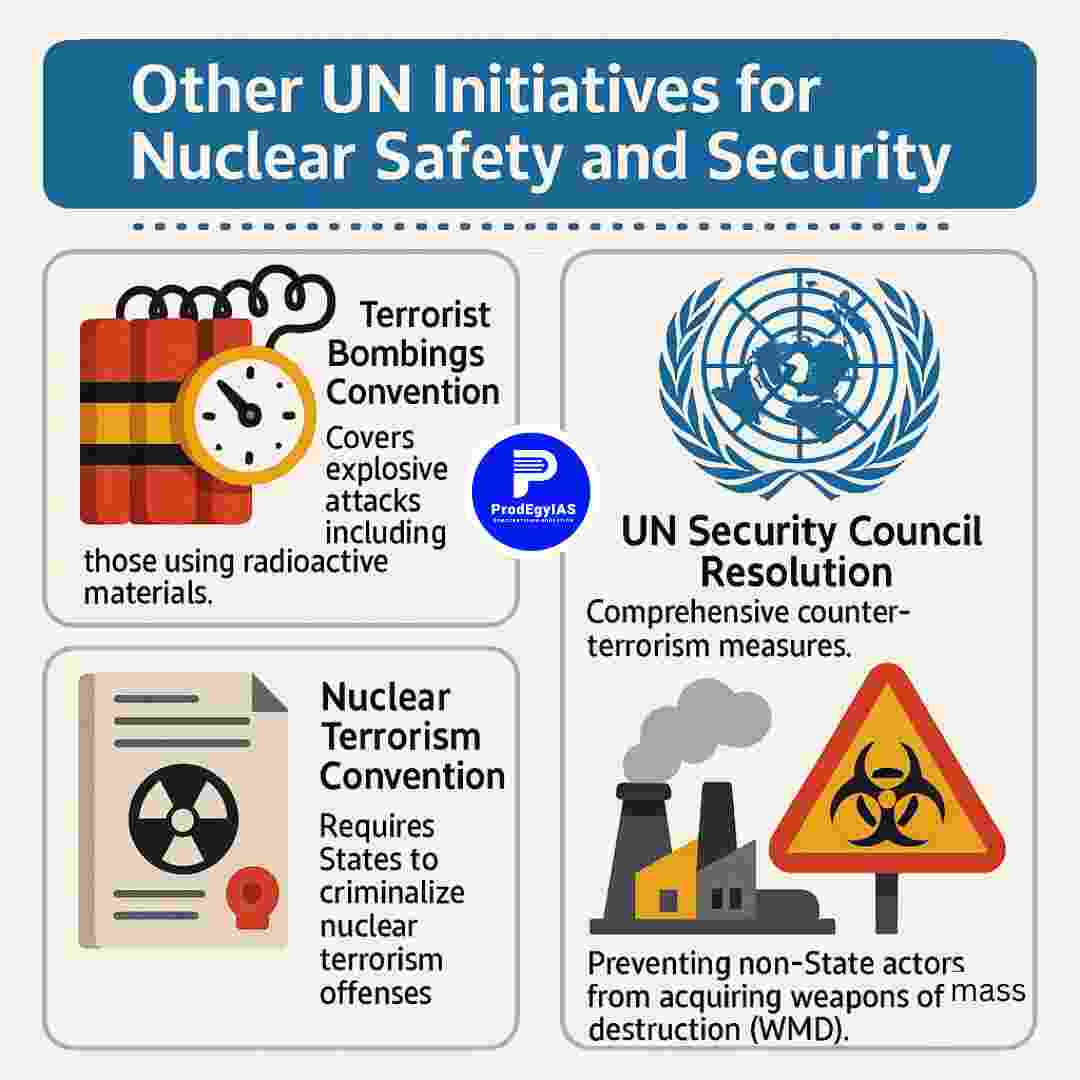Relevance: GS II International relations
Why in News
Concerns regarding nuclear safety and security in the ongoing Middle East conflict have been highlighted by the International Atomic Energy Agency’s (IAEA) disclosure of recent damage to Iran’s uranium enrichment facilities.
Concerning about Nuclear Safety and Security
Nuclear security refers to the prevention, detection, and response to unauthorized removal or access, sabotage, unlawful transfer, and other malevolent actions involving nuclear or radiological material or the facilities that are associated with it.
- Nuclear safety includes preventing and safeguarding against mishaps involving such materials or associated facilities that may provide a danger of radiation exposure.
In contrast to nuclear safety, nuclear security addresses deliberate risks, such as terrorism and sabotage.
Note: Stay informed about the most recent UPSC current Affairs, where we provide clear explanations of the major stories.
IAEA’s function in guaranteeing nuclear security and safety
India is a founding member of the IAEA, an independent UN agency established in 1957.
- Focuses on topics such as sustainable development, cancer prevention, food safety, and the peaceful use of nuclear energy.

Nuclear Safety and Security Conventions
The only legally enforceable international agreement for the physical protection of nuclear material, and the first multilateral accord. Code of Conduct in Safety and Security of Radioactive Source is an IAEA-issued document that is not legally binding.
- The goal of the Convention on Nuclear Safety (CNS) is to bind Contracting Parties that run civil nuclear power facilities on land to uphold a high standard of safety.
- Vienna Declaration on Nuclear Safety: To minimize radiological impacts and prevent accidents.
Mains:
Question: Discuss the implications of deliberate threats such as sabotage and terrorism on nuclear infrastructure in conflict zones. How do international conventions under the IAEA framework aim to address these concerns? (250 words)
Mains PYQs
Question: With growing energy needs should India keep on expanding its nuclear energy programme? Discuss the facts and fears associated with nuclear energy. (UPSC 2018)
Note: To take practice tests on Daily current Affairs MCQs, click the link that is attached.
MCQs
Question: With reference to nuclear safety and nuclear security, consider the following statements:
- Nuclear safety primarily deals with unintentional events such as accidents involving radioactive materials.
- Nuclear security deals with intentional threats such as terrorism, sabotage, and theft of nuclear material.
- Both nuclear safety and security fall under the exclusive jurisdiction of national governments and are not governed by any international norms.
Which of the statements given above is/are correct?
(a) 1 and 2 only
(b) 2 and 3 only
(c) 1 and 3 only
(d) 1, 2 and 3
Answer: (a)
MCQ PYQs
Question: In India, why are some nuclear reactors kept under “IAEA safeguards” while others are not? (2020)
(a) Some use uranium and others use thorium
(b) Some use imported uranium and others use domestic supplies
(c) Some are operated by foreign enterprises and others are operated by domestic enterprises
(d) Some are State-owned and others are privately owned
Answer: (b)
UPSC General Studies Paper Preparation
| Topic | |
| UPSC Syllabus | GS Genius-50 Program |
| Public administration crash course | UPSC GS Mains 2025 Study Material |
| About the Author: Nitin Kumar Singh |



